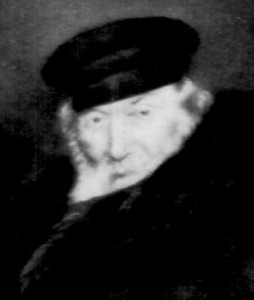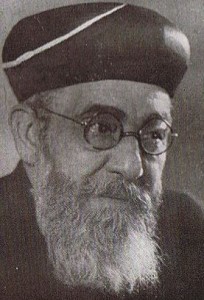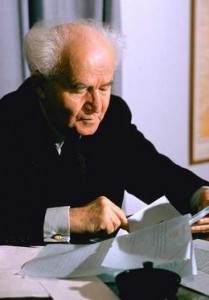Founder of Tel-Aviv
Meir Yankelevich Dizengoff (1861-1936) was born in Bessarabia, a region overlapping parts of modern-day Moldova and Ukraine. After completing his education, he enlisted in the Russian Army, where he served for two years. Dizengoff then settled in Odessa and soon joined a revolutionary group called Narodnaya Volya (“People’s Will”), which sought to overthrow the Tsar and assist the plight of the many impoverished people across the Russian Empire. At the same time, he met several Zionist leaders and joined Hovevei Zion, an organization formed in response to the tragic pogroms of 1881. In 1885, Dizengoff was arrested for his involvement with Narodnaya Volya’s insurgent activities. Upon his release, he moved back to Bessarabia to found a new branch of Hovevei Zion. A couple of years later, Dizengoff enrolled at the University of Paris to study chemical engineering. It was there that he met Edmond James de Rothschild, a member of the French Rothschilds who was an ardent Zionist. Rothschild sent Dizengoff to Israel to set up a bottle-making factory for his family’s wineries. Unfortunately, the factory didn’t do well, and Dizengoff returned to Europe. It wasn’t long before Dizengoff returned once more to the Holy Land, setting up his home in Jaffa in 1905, and starting a development and import company called Geulah. Several years later, Dizengoff joined together with Ahuzat Bayit to purchase a plot of land outside of Jaffa to create a new Jewish community. In 1909, this plot of land was divided among 66 Jewish families, establishing the town of Tel-Aviv. Two years later, Dizengoff became its head of planning, and was instrumental in its quick expansion and development. During World War I, the Ottomans expelled the town’s population, and it may have ceased to exist entirely were it not for the efforts of Dizengoff. In 1922, Tel-Aviv was recognized as a city, and not surprisingly, Dizengoff was elected its first mayor, a post he held until his death. In 1923, Tel-Aviv became the first city in Israel to have electricity. By 1925, its population had swelled to 34,000. Upon the passing of his beloved wife in 1930, Dizengoff donated their family home to the city, requesting that it be turned into a museum. It was there, on the 14th of May in 1948, that the State of Israel declared its independence. Unfortunately, Dizengoff himself didn’t live to see this day. However, he played a critical role both in the founding of Tel-Aviv, and Israel as a whole, and transformed Tel-Aviv from an empty parcel of land to a beautiful city of 150,000 at the time of his passing. To this day, Tel-Aviv’s most important artery is Dizengoff Street, often described as “Israel’s Champs-Élysées”.
Words of the Week
“Thus said God: ‘Behold, I will save My people from the countries of the East, and from the countries of the West; And I will bring them, and they shall dwell in the midst of Jerusalem; and they shall be My people, and I will be their God, in truth and in righteousness.'”
– Zechariah 8:7-8




